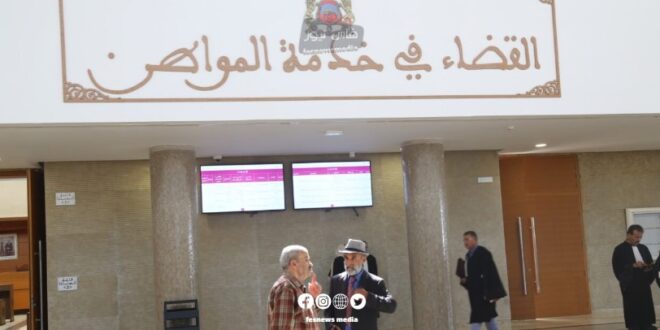Rabat – The Moroccan Council of Government is scheduled to discuss the long-awaited new Criminal Procedure Bill tomorrow, Thursday, after more than two decades of anticipation. This bill, prepared by the Ministry of Justice, aims to amend and complement Law No. 22.01 concerning criminal procedures.
The new Bill No. 03.23 seeks to enhance guarantees for individual rights and freedoms in accordance with international standards. Among the most prominent proposed changes is a revision of the legal controls for police custody, focusing on humanizing this procedure and rationalizing its use.
Key points in the new bill include:
- Considering police custody as an exceptional measure, limited to felonies and misdemeanors punishable by imprisonment.
- Ensuring respect for the dignity and legal rights of detainees during police custody.
- Introducing an audio-visual recording system for suspect statements in serious crimes.
- Strengthening the suspect’s right to contact their lawyer from the first hour of detention without prior permission from the public prosecutor’s office.
- Defining the scope of the right to remain silent, limiting it to the acts subject to arrest.
- Enabling the public prosecutor’s office to inform the public about developments in important cases.
- Enhancing protective measures for minors and special categories during detention.
- Establishing a national or regional electronic registry for police custody.
- Strengthening the role of forensic medicine in examining detainees.
This bill is seen as an important step towards modernizing the criminal justice system in Morocco and enhancing human rights protection. It is expected to spark wide-ranging discussions among government members and civil society about its potential impact on the course of justice in the kingdom.
The new bill emphasizes the need to implement police custody measures in conditions that guarantee respect for the dignity of the person and their legal rights. The same protective provision applies to minors detained for committing or suspected of committing crimes punishable under criminal law.
The project also stipulates the necessity of rationalizing the use of this measure and narrowing the cases of resorting to it. It explicitly states that the police custody measure “is an exceptional measure that can only be resorted to if it relates to a felony or misdemeanor punishable by imprisonment and it appears necessary for one or more of the reasons stipulated in Article 66-1.”
The bill outlines a set of measures and procedures aimed at monitoring the conditions of police custody and ensuring the rights of detainees, respecting their dignity and humanity, as well as limiting any arbitrary action that may affect them or their physical integrity or deprive them of their legally granted rights in accordance with international conventions and the kingdom’s constitution.
These procedures, according to the text of the bill, aim to strengthen confidence in the reports prepared by the judicial police to achieve trust and credibility in the performance of criminal justice.
This new legislation represents a significant step in Morocco’s ongoing efforts to align its criminal justice system with international standards and to strengthen the protection of individual rights within the legal process.
 فاس نيوز ميديا جريدة الكترونية جهوية تعنى بشؤون و أخبار جهة فاس مكناس – متجددة على مدار الساعة
فاس نيوز ميديا جريدة الكترونية جهوية تعنى بشؤون و أخبار جهة فاس مكناس – متجددة على مدار الساعة













